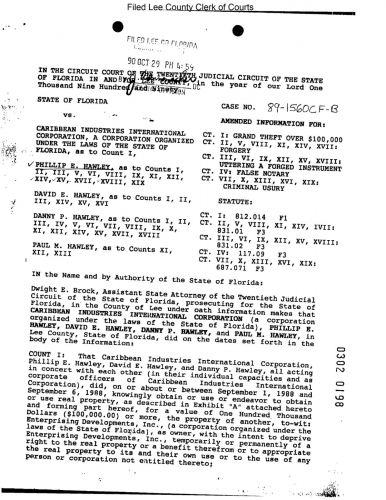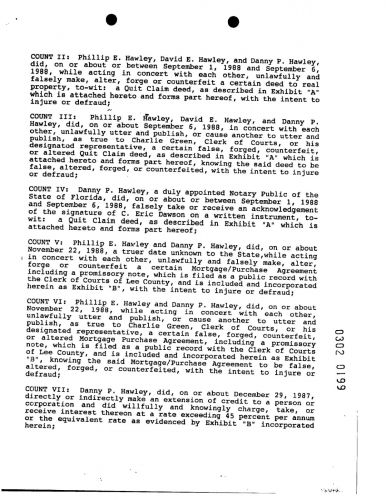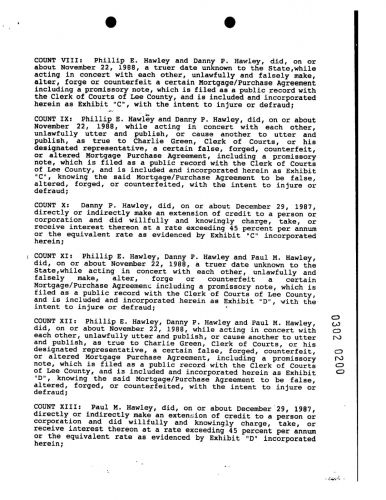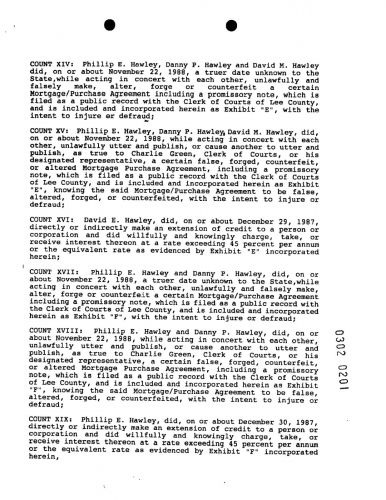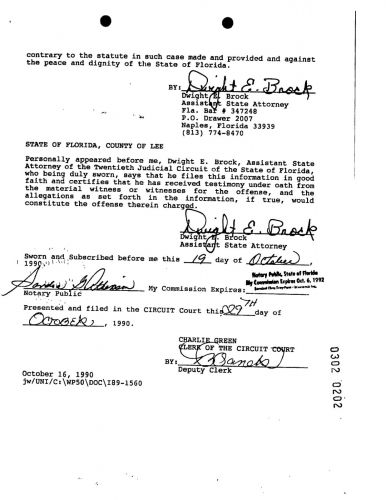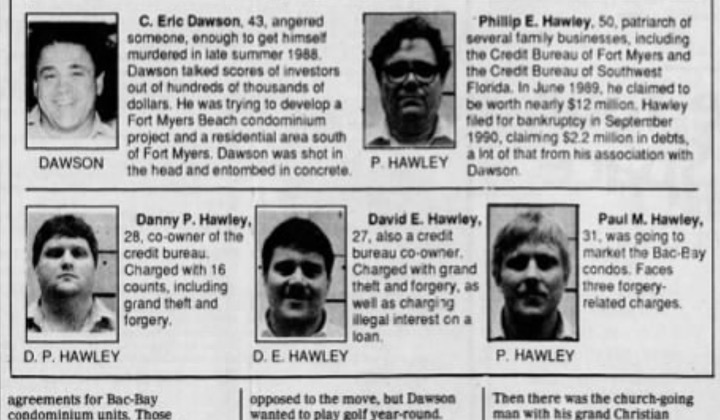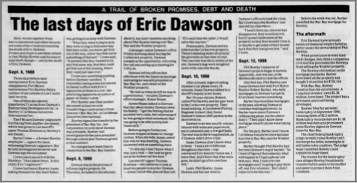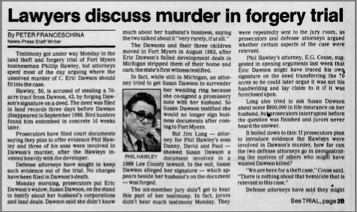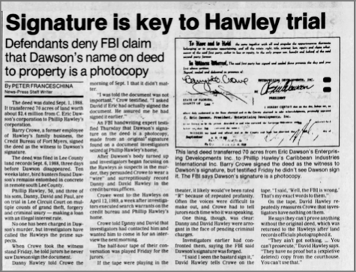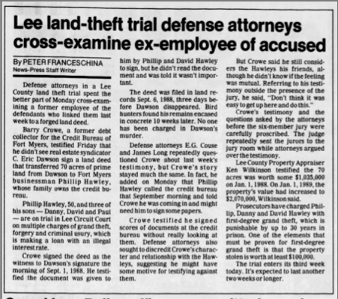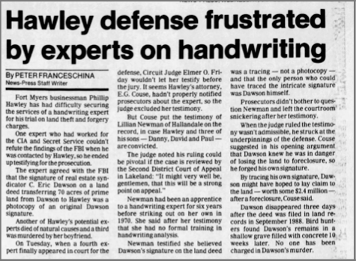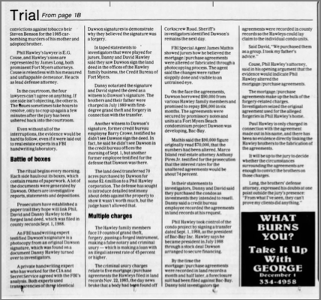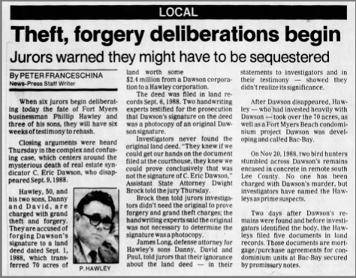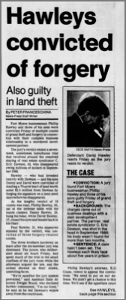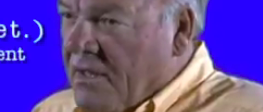Bombshell testimony from Eric Dawson’s former secretary and an undercover informant reveals the suspects’ depth of deception in stealing Eric’s land days before he vanished.
Episode Photos
Episode Source Material
- “Man In Cement Died of Gunshot” by Peter Franceschina and Phil Fernandez for Fort Myers News-Press, December 16, 1988 via Newspapers.com
- “A Trail of Broken Promises, Debt and Death” (Page 1) by Peter Franceschina for Fort Myers News-Press, October 6, 1991 via Newspapers.com
- “A Trail of Broken Promises, Debt and Death” (Page 2) by Peter Franceschina for Fort Myers News-Press, October 6, 1991 via Newspapers.com
- “Land Theft Trial of Hawleys Gets Underway” by Peter Franceschina for Fort Myers News-Press, October 11, 1991 via Newspapers.com
- “Signature of Dead Man Key in Theft, Forgery Trial” by Peter Franceschina for Fort Myers News-Press, October 12, 1991 via Newspapers.com
- “Lawyers Discuss Murder In Forgery Trial” by Peter Franceschina for Fort Myers News-Press, October 15, 1991 via Newspapers.com
- “Signature Is Key to Hawley Trial” by Peter Franceschina for Fort Myers News-Press, October 19, 1991 via Newspapers.com
- “Lee Land-Theft Trial Defense Attorneys Cross-Examine Ex-Employee of Accused” by Peter Franceschina for Fort Myers News-Press, October 22, 1991 via Newspapers.com
- “Hawley Defense Frustrated by Experts on Handwriting” by Peter Franceschina for Fort Myers News-Press, October 30, 1991 via Newspapers.com
- “No Smoking Gun Revealed in Trial” by Peter Franceschina for Fort Myers News-Press, November 4, 1991 via Newspapers.com
- “Theft, Forgery Deliberations Begin” by Peter Franceschina for Fort Myers News-Press, November 22, 1991 via Newspapers.com
- “Hawleys Convicted of Forgery” by Peter Franceschina for Fort Myers News-Press, November 23, 1991 via Newspapers.com
- “Mystery of Murder and Money” by Peter Franceschina and Phil Fernandez for Fort Myers News-Press, December 18, 1988 via Newspapers.com


